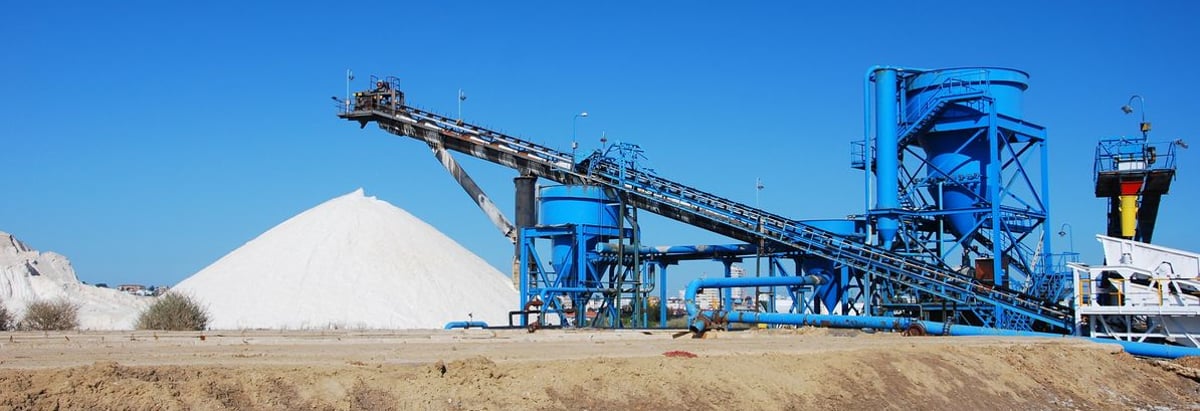Stock Analysis
- Australia
- /
- Metals and Mining
- /
- ASX:HGO
Retail investors are Hillgrove Resources Limited's (ASX:HGO) biggest owners and were hit after market cap dropped AU$21m

Key Insights
- Significant control over Hillgrove Resources by retail investors implies that the general public has more power to influence management and governance-related decisions
- A total of 17 investors have a majority stake in the company with 46% ownership
- Insider ownership in Hillgrove Resources is 10%
Every investor in Hillgrove Resources Limited (ASX:HGO) should be aware of the most powerful shareholder groups. And the group that holds the biggest piece of the pie are retail investors with 54% ownership. In other words, the group stands to gain the most (or lose the most) from their investment into the company.
As a result, retail investors as a group endured the highest losses last week after market cap fell by AU$21m.
Let's delve deeper into each type of owner of Hillgrove Resources, beginning with the chart below.
View our latest analysis for Hillgrove Resources
What Does The Lack Of Institutional Ownership Tell Us About Hillgrove Resources?
We don't tend to see institutional investors holding stock of companies that are very risky, thinly traded, or very small. Though we do sometimes see large companies without institutions on the register, it's not particularly common.
There are multiple explanations for why institutions don't own a stock. The most common is that the company is too small relative to funds under management, so the institution does not bother to look closely at the company. On the other hand, it's always possible that professional investors are avoiding a company because they don't think it's the best place for their money. Hillgrove Resources might not have the sort of past performance institutions are looking for, or perhaps they simply have not studied the business closely.
Hillgrove Resources is not owned by hedge funds. The company's largest shareholder is Freepoint Commodities Holdings LLC, with ownership of 20%. For context, the second largest shareholder holds about 11% of the shares outstanding, followed by an ownership of 3.6% by the third-largest shareholder. Furthermore, CEO Lachlan Wallace is the owner of 1.1% of the company's shares.
On studying our ownership data, we found that 17 of the top shareholders collectively own less than 50% of the share register, implying that no single individual has a majority interest.
While studying institutional ownership for a company can add value to your research, it is also a good practice to research analyst recommendations to get a deeper understand of a stock's expected performance. There is some analyst coverage of the stock, but it could still become more well known, with time.
Insider Ownership Of Hillgrove Resources
While the precise definition of an insider can be subjective, almost everyone considers board members to be insiders. Management ultimately answers to the board. However, it is not uncommon for managers to be executive board members, especially if they are a founder or the CEO.
I generally consider insider ownership to be a good thing. However, on some occasions it makes it more difficult for other shareholders to hold the board accountable for decisions.
Our most recent data indicates that insiders own a reasonable proportion of Hillgrove Resources Limited. Insiders own AU$18m worth of shares in the AU$170m company. This may suggest that the founders still own a lot of shares. You can click here to see if they have been buying or selling.
General Public Ownership
The general public, who are usually individual investors, hold a substantial 54% stake in Hillgrove Resources, suggesting it is a fairly popular stock. This level of ownership gives investors from the wider public some power to sway key policy decisions such as board composition, executive compensation, and the dividend payout ratio.
Private Company Ownership
We can see that Private Companies own 23%, of the shares on issue. It's hard to draw any conclusions from this fact alone, so its worth looking into who owns those private companies. Sometimes insiders or other related parties have an interest in shares in a public company through a separate private company.
Public Company Ownership
It appears to us that public companies own 11% of Hillgrove Resources. We can't be certain but it is quite possible this is a strategic stake. The businesses may be similar, or work together.
Next Steps:
It's always worth thinking about the different groups who own shares in a company. But to understand Hillgrove Resources better, we need to consider many other factors. For instance, we've identified 2 warning signs for Hillgrove Resources that you should be aware of.
Ultimately the future is most important. You can access this free report on analyst forecasts for the company.
NB: Figures in this article are calculated using data from the last twelve months, which refer to the 12-month period ending on the last date of the month the financial statement is dated. This may not be consistent with full year annual report figures.
Valuation is complex, but we're here to simplify it.
Discover if Hillgrove Resources might be undervalued or overvalued with our detailed analysis, featuring fair value estimates, potential risks, dividends, insider trades, and its financial condition.
Access Free AnalysisHave feedback on this article? Concerned about the content? Get in touch with us directly. Alternatively, email editorial-team (at) simplywallst.com.
This article by Simply Wall St is general in nature. We provide commentary based on historical data and analyst forecasts only using an unbiased methodology and our articles are not intended to be financial advice. It does not constitute a recommendation to buy or sell any stock, and does not take account of your objectives, or your financial situation. We aim to bring you long-term focused analysis driven by fundamental data. Note that our analysis may not factor in the latest price-sensitive company announcements or qualitative material. Simply Wall St has no position in any stocks mentioned.
About ASX:HGO
Hillgrove Resources
Operates as a mining company in Australia.

